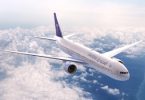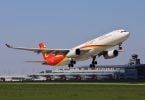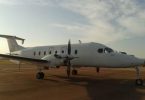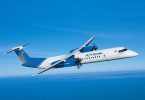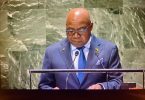(eTN): Air Transport Association opposes Obama’s proposed aviation taxes | repost | post your content
WASHINGTON – The Air Transport Association of America (ATA), the industry trade organization for the leading U.S. airlines, today called on lawmakers to oppose the President’s proposals to impose a new $100 departure tax on every flight and to triple the passenger security tax to reduce the deficit, saying that hiking aviation taxes would hurt economic recovery, further burden airlines and customers and cost jobs.
“We oppose any new taxes on airlines or their passengers,” ATA President and CEO Nicholas E. Calio said. “We already pay more than our fair share of taxes – more than the alcohol and tobacco industries, whose products are taxed at levels to discourage their use. Today, taxes and fees on a typical $300 round-trip ticket already account for more than $60 of the total cost.”
The industry’s non-income tax burden has grown from $3.7 billion in 1993 to approximately $17 billion today. In 2010, a year in which the entire industry’s profit was under $4 billion, U.S. airlines and their passengers contributed $3.4 billion in taxes and fees to the Department of Homeland Security, including $2 billion in taxes and fees to the Transportation Security Administration (TSA) – a 50 percent increase from the amount collected in 2002.
“TSA costs are not all related to aviation. Yet, no other industry or mode of transportation pays for its security as airlines do, even though it is clear that the terrorists targeting commercial aircraft are not attacking the airlines themselves but, rather, the U.S. economy and the American way of life,” Calio said.
“Since 9/11, the U.S. airline industry has lost $55 billion and 160,000 jobs – over a third of its workforce. Adding to that burden is not ‘reform,’ it is a jobs eliminator. The President’s proposals will significantly impact traveling consumers and give yet another leg up to U.S. carriers’ foreign competitors. We should advance a tax policy that encourages air service to grow, not contract,” added Calio. “Airlines are critical to the nation’s economic health. Commercial aviation drives more than $1 trillion in economic activity and more than 5 percent of U.S. gross domestic product each year – and is responsible for more than 10 million jobs. Every 100 airline jobs support about 388 jobs outside of the industry.”



